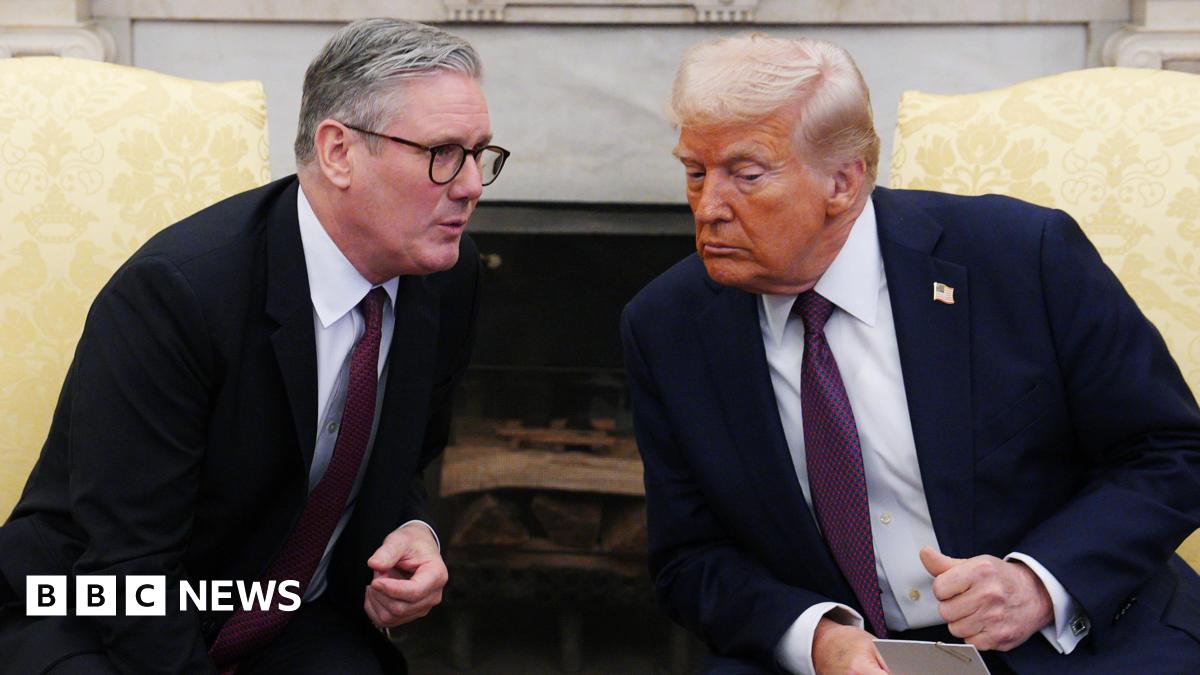Starmer-Trump: Exploring the Potential for a UK-US Economic Deal
A potential transatlantic trade deal between the UK and the US has emerged as a key topic of discussion, following a recent meeting between UK Labour leader Keir Starmer and former US President Donald Trump. While details remain scarce, the potential implications for both economies are significant, sparking debate among economists and political analysts alike.
The Meeting and its Implications
The meeting between Starmer and Trump, the details of which haven't been fully disclosed, reportedly touched upon the possibility of a comprehensive trade agreement. This comes at a time when the UK is seeking to diversify its trade partnerships post-Brexit, and the US is considering its own economic strategies. The potential for a deal between the two nations holds both immense opportunities and significant challenges.
-
Opportunities: A UK-US trade deal could unlock significant economic benefits, including:
- Increased trade volume: Removing tariffs and streamlining regulations could boost exports and imports between the two countries.
- Investment growth: Improved market access could attract greater foreign direct investment (FDI) from both sides of the Atlantic.
- Enhanced economic competitiveness: Access to a larger market could enhance the competitiveness of businesses in both the UK and the US.
- Technological collaboration: Closer economic ties could foster collaboration in key technological sectors.
-
Challenges: However, several challenges stand in the way of a successful agreement, including:
- Regulatory differences: Significant differences exist between UK and US regulations, particularly in areas such as food safety and environmental standards. Bridging these gaps will require careful negotiation.
- Political sensitivities: The political climate in both countries is currently volatile, and reaching a bipartisan consensus on a trade deal could prove challenging.
- Concerns about worker rights and environmental protection: Critics fear that a deal could lead to a "race to the bottom" in terms of labor and environmental standards. Addressing these concerns will be crucial to securing public support for the agreement.
- Northern Ireland Protocol: The ongoing complexities surrounding the Northern Ireland Protocol could further complicate negotiations. Any trade deal would need to consider its impact on the delicate balance in the region.
Analyzing the Potential Outcomes
The success of a potential UK-US trade deal hinges on several factors, including the political will of both governments, the ability to address regulatory differences, and the capacity to mitigate potential negative consequences. While a comprehensive deal would undoubtedly bring significant economic advantages, navigating the political and regulatory hurdles will require skillful diplomacy and compromise.
Several prominent economists are already weighing in on the potential benefits and risks, with some suggesting a phased approach focusing on specific sectors initially, before tackling more complex areas. The long-term impacts will depend greatly on the specifics of the deal, including provisions on tariffs, regulations, and dispute resolution.
What's Next?
While the meeting between Starmer and Trump has ignited speculation, the path towards a concrete agreement remains uncertain. Further discussions and negotiations will be necessary to determine the feasibility and scope of a potential deal. The coming months will be crucial in assessing the political momentum and determining whether this initial conversation translates into meaningful progress. We will continue to monitor developments and provide updates as they emerge.
Keywords: Starmer, Trump, UK-US trade deal, economic deal, Brexit, transatlantic trade, trade agreement, economic benefits, regulatory differences, political challenges, Northern Ireland Protocol.

